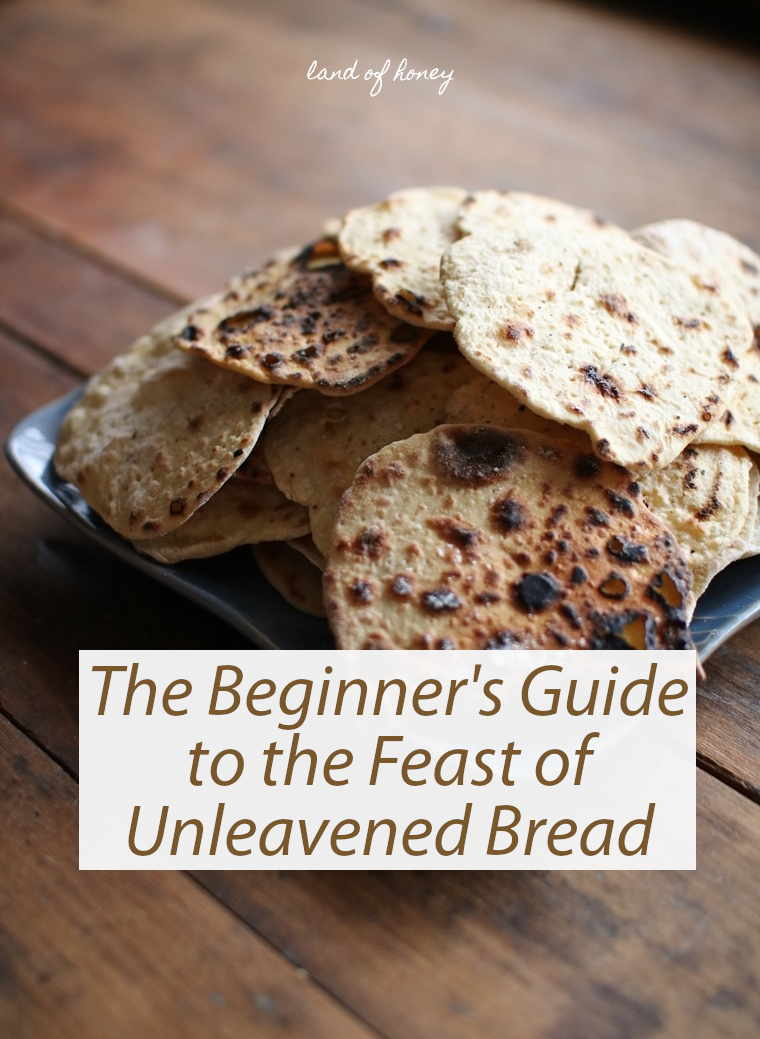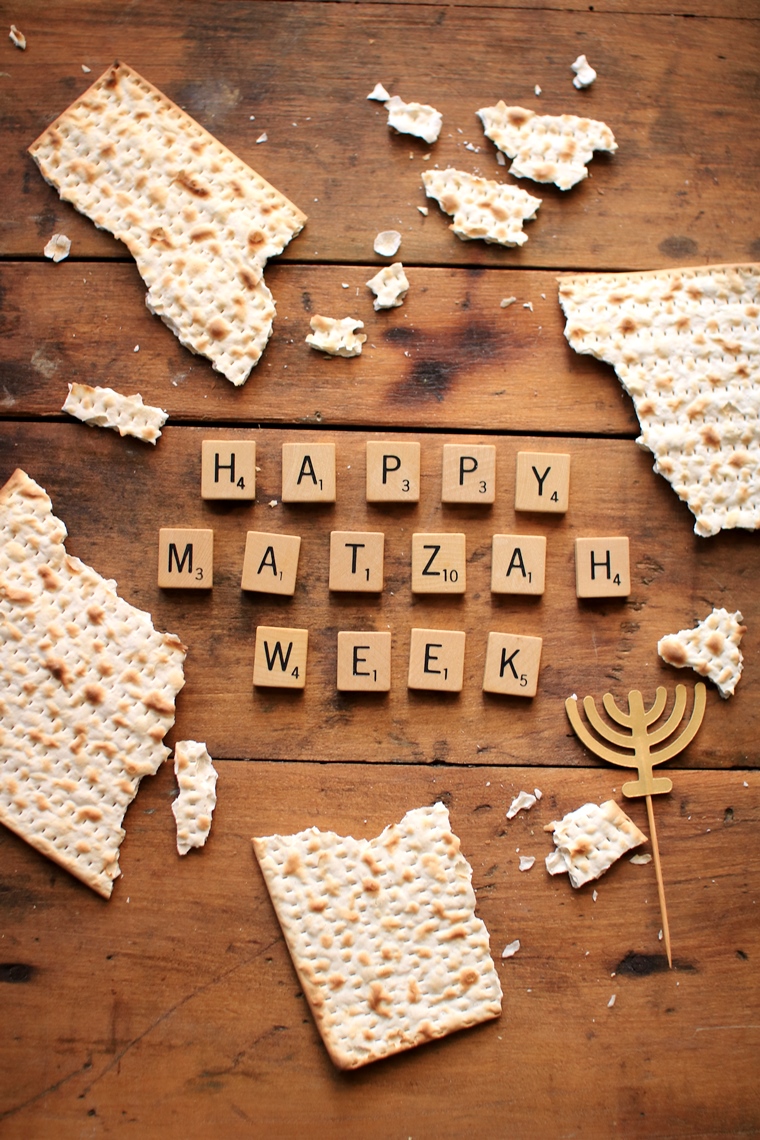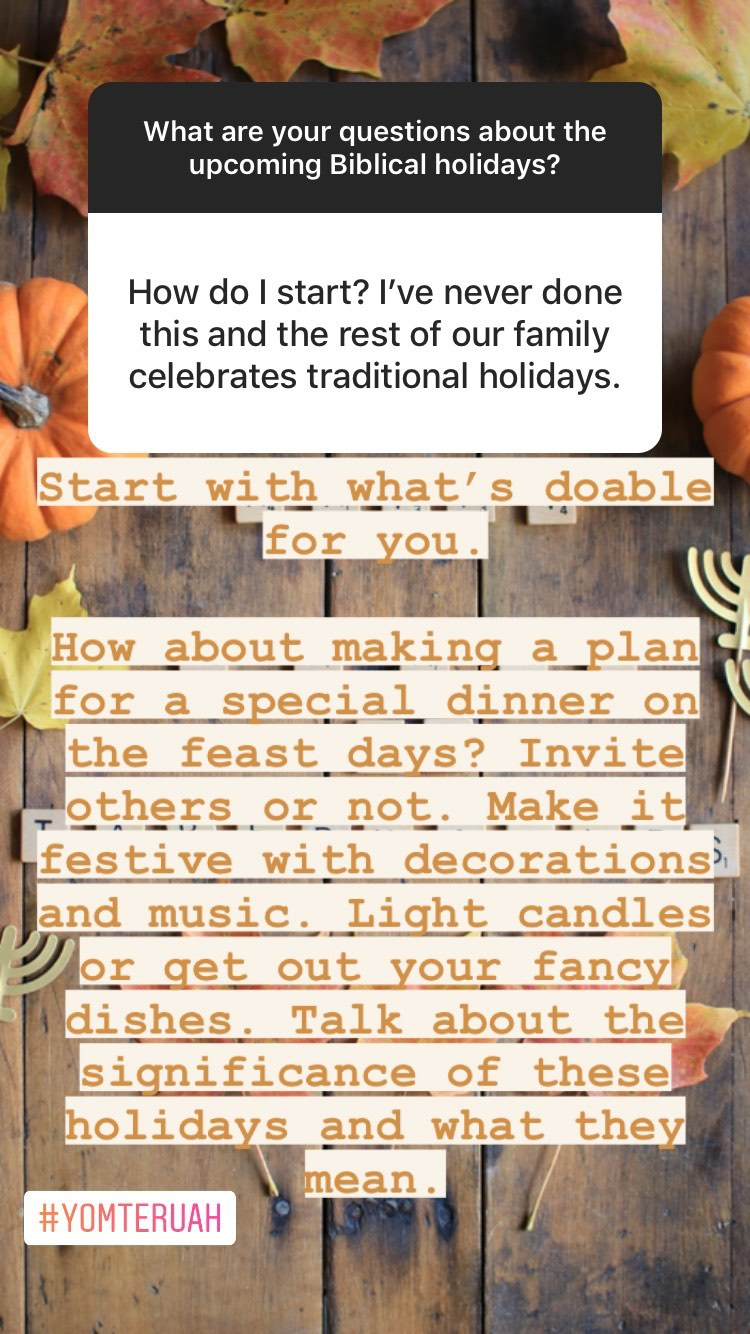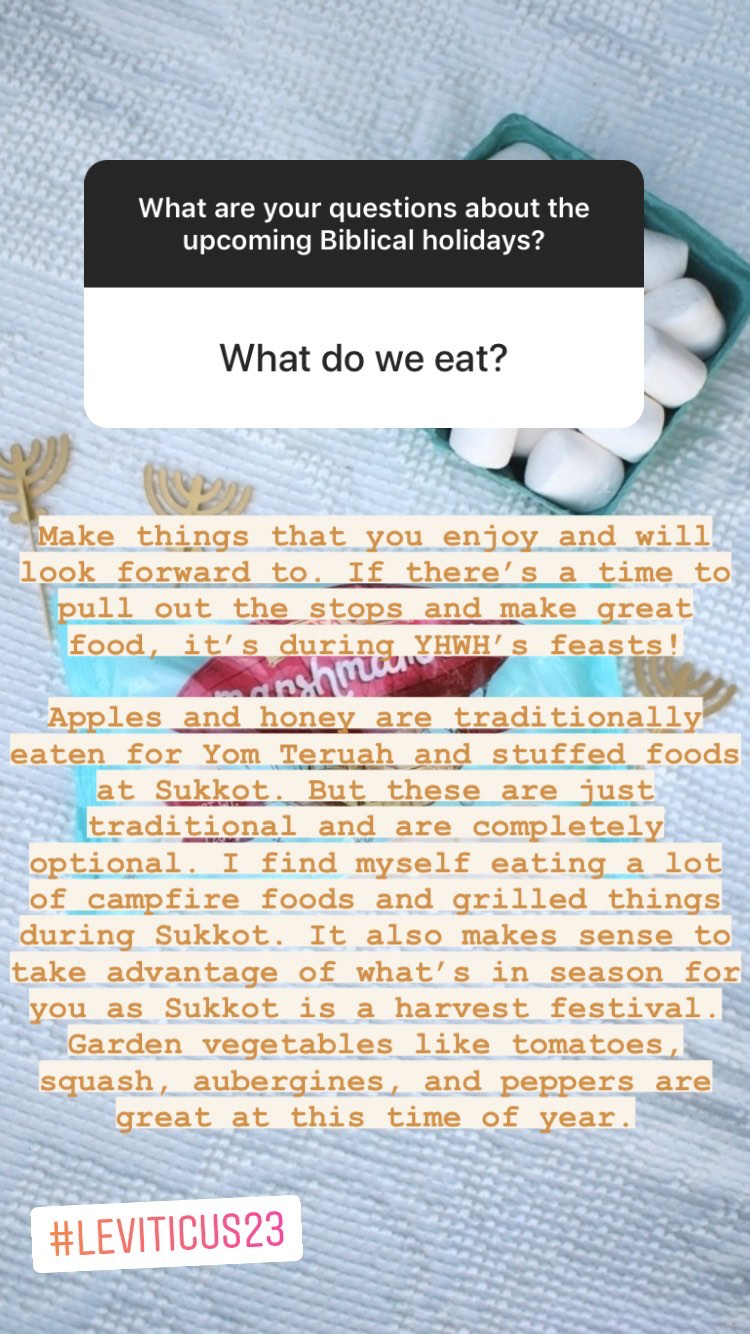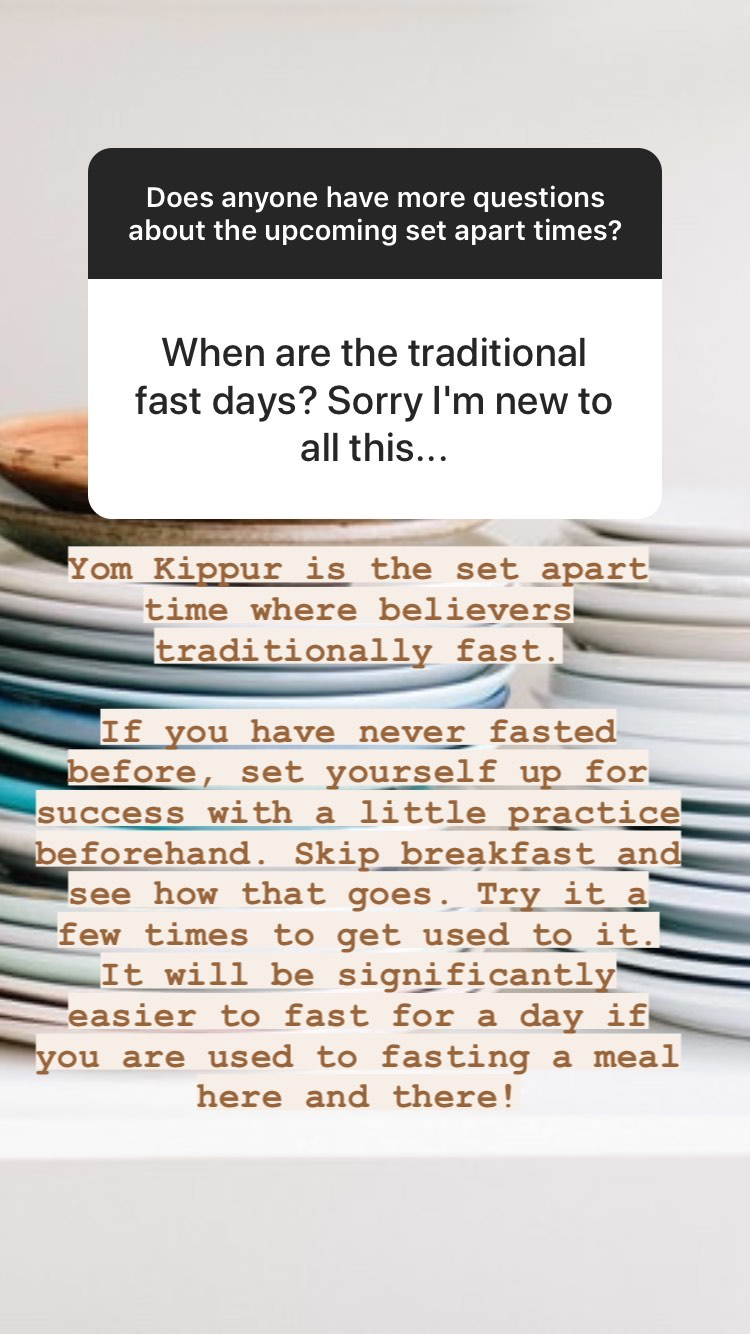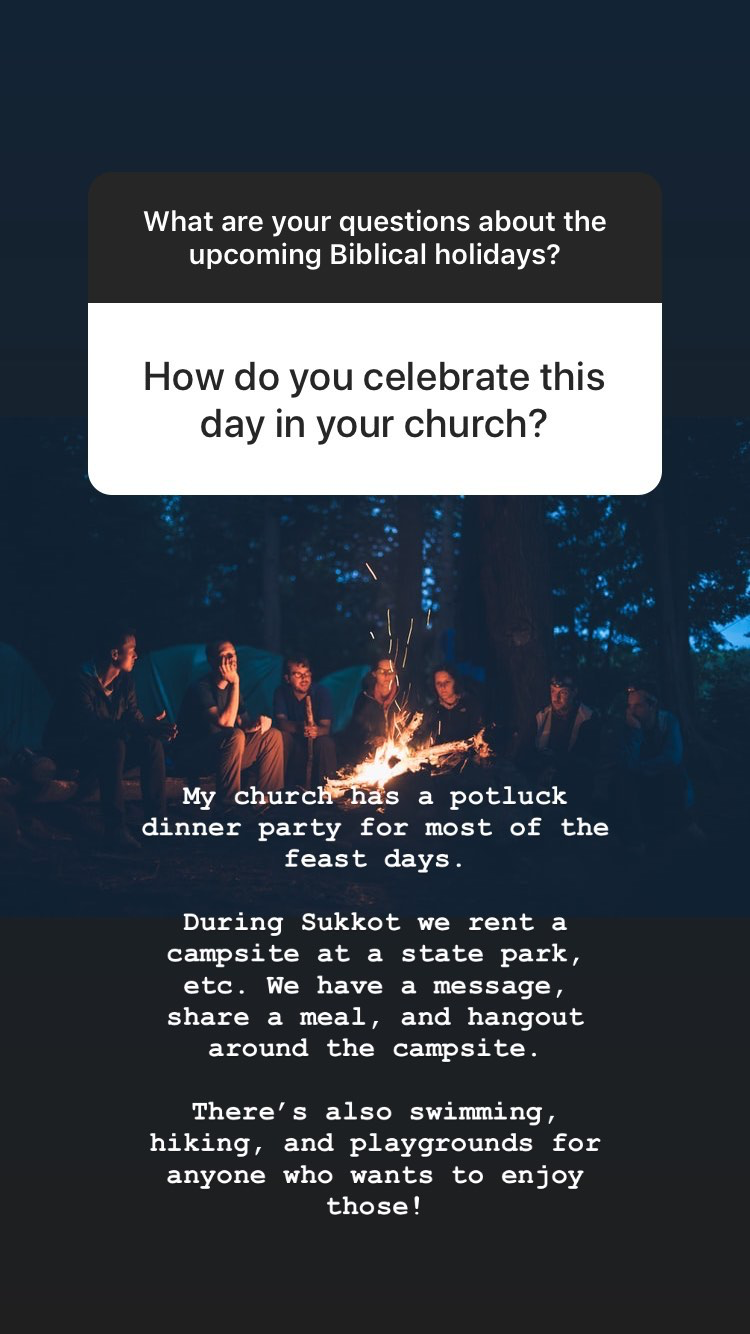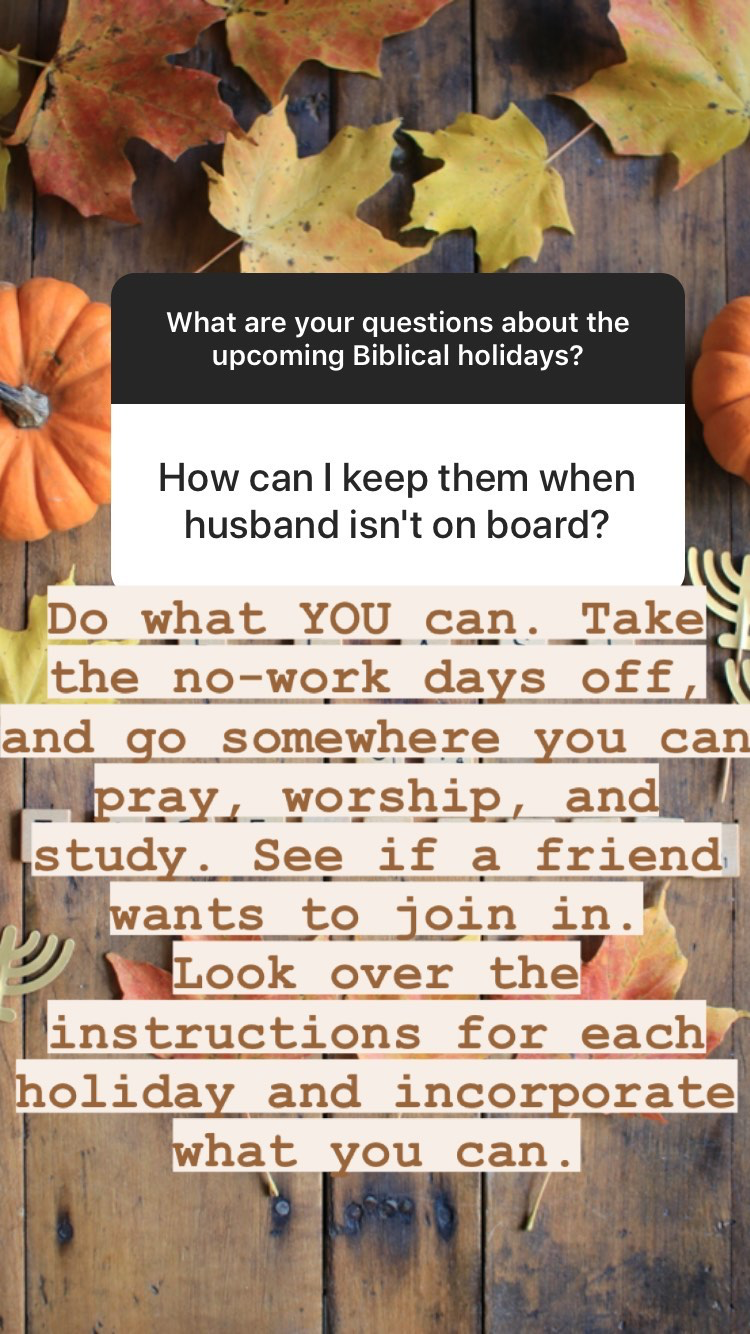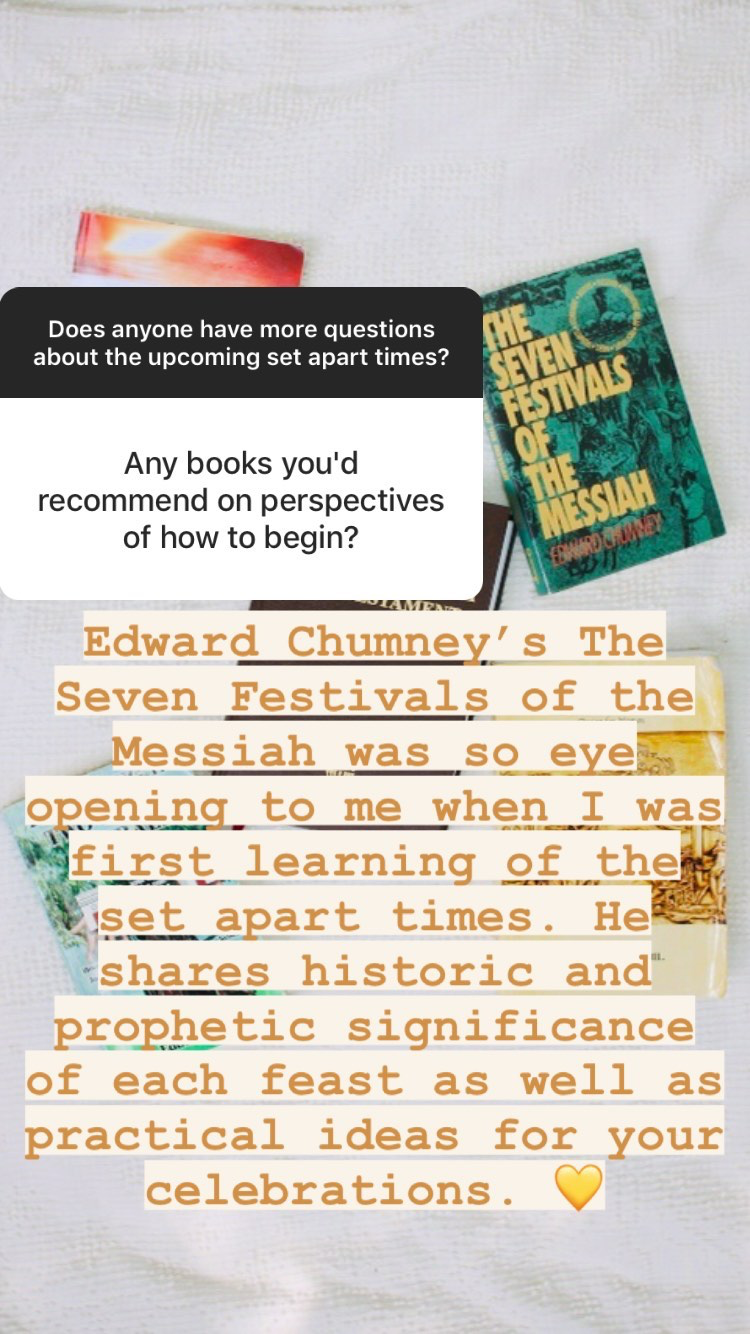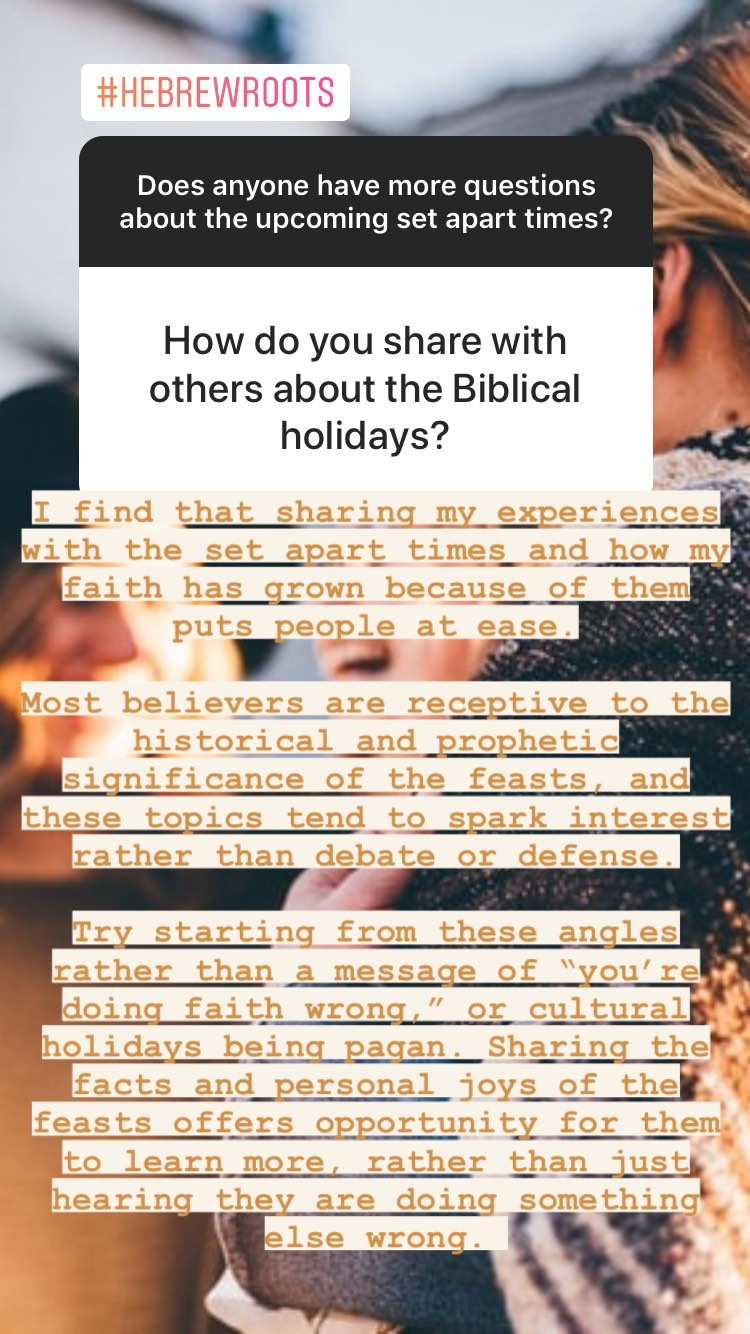These are questions I frequently am asked about the Biblical holidays of the Feast of Trumpets, Yom Kippur, and the Feast of Tabernacles. These are also known as the fall feasts because they happen in early autumn in the northern parts of the world. I am a believer in Messiah and do my best to answer questions based on what the Bible says and not man's traditions.
I'm getting a good understanding of Yom Teruah, but Sukkot still confuses me a bit.Keep learning! During Sukkot/Tabernacles we set up tents or traditional sukkahs as a reminder that one day the Messiah will return and tabernacle with us once again!See this post about what Sukkot is and why we should celebrate it.
Simple beginner ways to acknowledge and celebrate?
Start with putting these holidays on your calendar. Host a dinner party or Bible study to discuss and celebrate these special times. Don't worry about man's traditions - read through Scripture and see what it says.
How do I start? I have never done this and the rest of my family celebrates traditional holidays.
Start with what's doable for you. How about making a plan for a special dinner on the feast days? Make it festive with decorations and music. Light candles or get out your fancy dishes. Talk about the significance of these holidays and what they mean.
What do we eat?
Make things that you enjoy and will look forward to. If there's a time to pull out the stops, and make great food it's during YHWH's feasts!
Apples and honey are traditionally eaten at Yom Teruah and stuffed foods at Sukkot. But these are just traditional and are completely optional. I find myself eating a lot of campfire foods and grilled things during Sukkot. It also makes sense to take advantage of what's in season for you as Sukkot is a harvest festival. Garden vegetables like tomatoes, squash, aubergines, and peppers are great at this time of year.
When you first started celebrating the feasts did you make it grandiose?
Not at all. The first time I celebrated each I felt like I was struggling to get through the basics. I didn't know a single person who kept these holidays and couldn't find so much as a picture online of what these days were supposed to look like. So if that's where you're at know that you aren't alone and that it really does become sooo much easier each year!
What are the traditional fast days?
Yom Kippur is the set apart time where believers traditionally fast.
If you have never fasted before, set yourself up for success with a little practice beforehand. Skip breakfast and see how that goes. Try it a few times to get used to it. It will be significantly easier to fast for a day if you're used to fasting a meal here and there!
What does Yom Kippur look like with three young kids?
Get them involved! Read Bible stories and do crafts together. Talk about the special times and what they mean. Kids are not expected to fast. If you're fasting plan a special meal with them to break your fast with. They will see what you're doing and learn from your example.
How do you celebrate this day in your church?
My church has a potluck dinner for most of the feast days.
During Sukkot we rent a campsite at a state park, etc. We have a message, share a meal, and hangout around the campfire. There's also swimming, hiking, and playgrounds for anyone who wants to enjoy those!
How can I keep them when my husband isn't on board?
Do what YOU can. Take the no-work days off and go somewhere you can pray, worship, and study. See if a friend wants to join in. Look over the instructions for each holiday and incorporate what you can.
Tips for keeping the feast when living at home and parents don't agree?
Invite them to participate with you but don't make it your job to convince them of this. Continue to honor them and be respectful as you set an example of keeping the feasts. Maybe they don't want the living room decorated but can you still decorate in your room? Maybe they wouldn't appreciate a shofar blasting all day long, but can you put on some worship music they like? Focus on what you can do! If you want to invite them to do something with you make sure you are in charge of it (make the food, lead the study, etc.). Make plans for worship, study, and joy during these times. Get out of the house if need be.
Praying they are drawn to more of his truth as they see you honor the Creator in this way!
What's your family doing this year?
Excited for a congregational Yom Teruah celebration at a lake this year! There will be a potluck, message, time to enjoy creation, and discussion of how YHWH is working in everyone's lives right now.
How should I celebrate them if I am alone in my faith?
Find joy in these special times even if it's private. Maybe see about going to a lovely lake or park area for quiet time with YHWH. Have a dance party to worship music by yourself! Make a special meal or dessert. Rest and enjoy this time.
Is the tent on Sukkot optional?
Leviticus 23:42 says that we should dwell in temporary shelters. People handle this verse in a variety of ways. Some go tent camping or stay in an RV or cabin. Others put up some sort of sukkah outside and just eat meals in it.
Pray and see what the Creator is calling you to!
I've always wondered about staying in a camper/RV. It seems a tent may be more appropriate.
I mean a tent is definitely going to be closer to how the Israelites lived in the desert. But I applaud anyone making an effort at a temporary shelter during the Feast of Tabernacles!
Should we still offer sacrifices?
If you are a believer in the Messiah then no animal sacrifice is needed! More on that in this post.
Minimalist supplies on a budget - what can we make or thrift?
Pretty much anything! Greenery from your yard is festive and free. Decorates with apples, pumpkins, etc. and enjoy them later. Thrifted curtains are an inexpensive way to make an unconventional sukkah. Use pretty dishes, candles, and tablecloths that you already have. Inexpensive balloons and streamers add a lot of festivity to a space.
If you have a menorah the feasts are the perfect time to light it up!
Also check out free printables from my blog and Torah Sisters.
Where can I find feast printables?
We fall for the fall feasts.
Happy Yom Teruah!
Yom Teruah printable card.
Ephesians 1:7 Printable for Yom Kippur.
Palm Frond, Myrtle, Citron, and Willow.
Any books you'd recommend for perspectives on how to begin?
Edward Chumney's The Seven Festivals of the Messiah was so eye-opening to me when I was learning about these set apart times. He shares historic and prophetic significance of each feast as well as practical ideas for your celebrations.
Books for kids?
Definitely would recommend The Special Days by Danielle Kerr!
Favorite Messianic resources to teach/involve young kids?
Bible Pathway Adventures has some great stuff for kids!
Do you do traditional prayers and blessings?
I do not. Unfortunately many of the traditional blessings contain Biblical untruths (such as YHWH commanding candles to be lit on the Sabbath and Yom Kippur, no such instruction is found in Scripture). Traditional blessings and prayers can be lovely guidelines, but make sure what you're saying fits with your best understanding of what Scripture says!
I know it's not a feast but do you observe Hanukkah as well?
I personally do not. It's easier for my family and friends to accept that I don't do Christmas because it's not in the Bible, if I'm not doing other holidays that aren't in Scripture. More on that in this post.
How do you share with others about the Biblical holidays?
I find that sharing my experiences with the set apart times and how many faith has grown because of them puts people at ease.
Most people are receptive to the historic and prophetic significance of the feasts, and these topics tend to spark interest rather than debate or offense.
Try starting from these angles, rather than a message of "you're doing faith wrong," or cultural holidays being pagan. Sharing the facts and personal joys offers opportunity for them to learn more, rather than just hearing they are doing something else wrong.
Related posts:
The Beginner's Guide to the Biblical Holidays
Honoring Yom Kippur as a Believer in Messiah
8 Things Scripture Says About the Feast of Tabernacles


